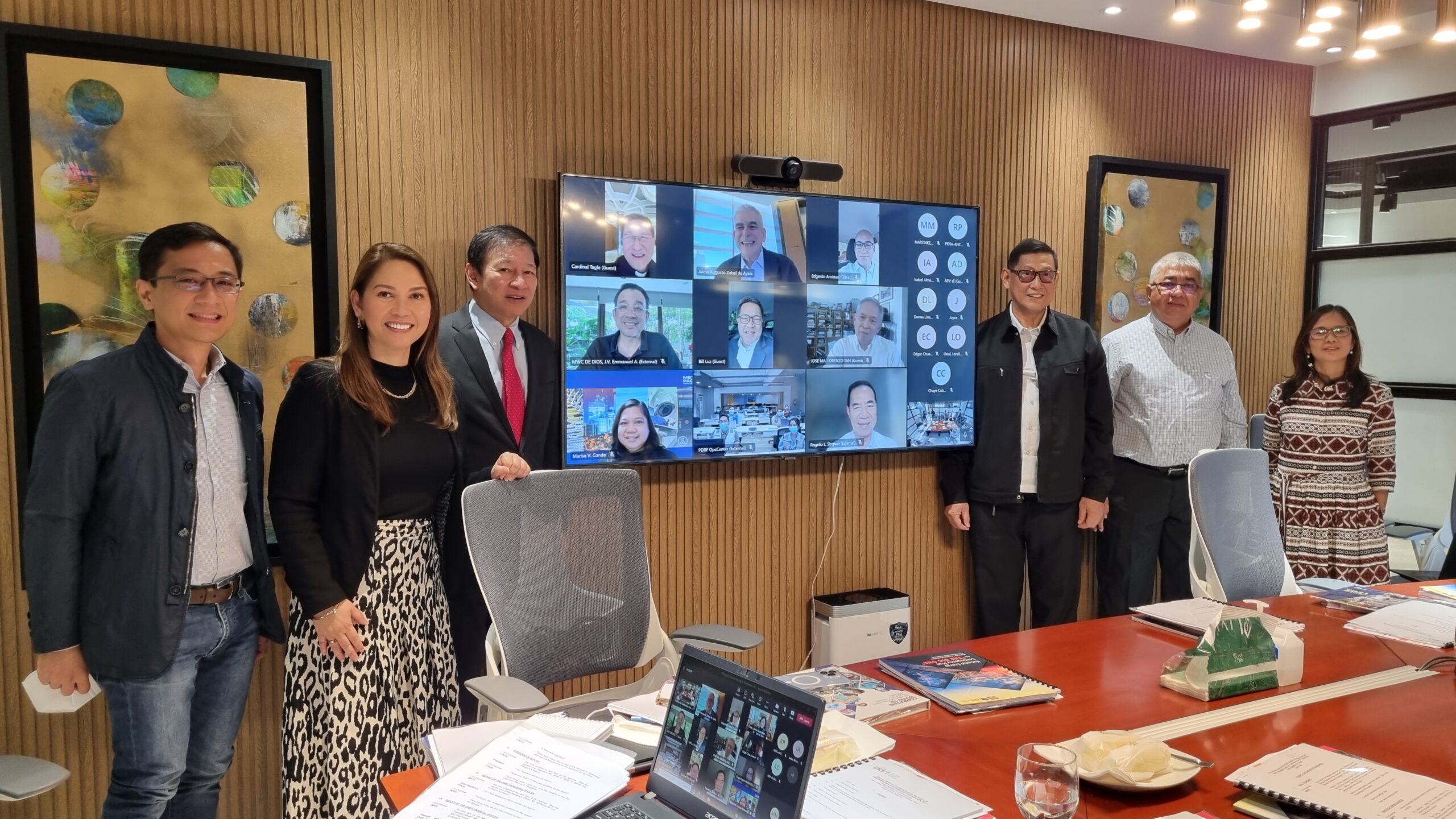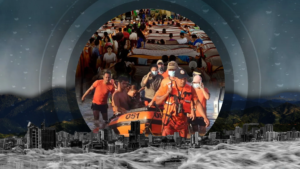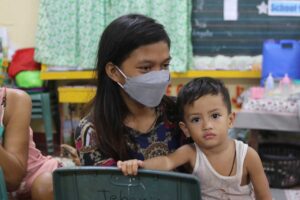The Philippine Disaster Resilience Foundation (PDRF) presented its milestones to the Board of Trustees during its recent Board meeting, including over USD 2 million worth of grants and donations that PDRF received in 2022 from local and international partners to conduct disaster response initiatives and implement development programs, and over 3.5 million people assisted through emergency preparedness projects.
In a meeting attended by PDRF Co-Chairs Ayala Corporation CEO and Chairman Jaime Augusto Zobel de Ayala and Prefect of the Congregation for the Evangelization of Peoples Cardinal Luis Antonio Tagle, PDRF President Butch Meily highlighted the successes of community resilience and disaster recovery programs. PDRF’s Project Konek reached 3.5 million individuals in Quezon City and Makati, while recovery programs for typhoons Odette and Rolly reached over 60,000. PDRF Co-Chair and PLDT/Metro Pacific Chairman Manuel V. Pangilinan was unable to join the meeting.
PDRF Board of Trustees include Aboitiz Equity Ventures Inc. President and CEO Sabin Aboitiz, PDRF Chief Financial Officer and Metro Pacific Investments Corp. Chief Sustainability Officer June Cheryl Cabal-Revilla, Makati Business Club Chairman Edgar Chua, Manila Water Company President and CEO Jose Victor Emmanuel de Dios, Manila Electric Company President and CEO Ray Espinosa, World Wildlife Fund Philippines Adviser Jose Maria Lorenzo Tan, Magsaysay Group of Companies CEO Doris Magsaysay Ho, First Gen Corp. Chairman and CEO Federico Lopez, Pilipinas Shell Petroleum Corp. President, CEO, and Executive Director Lorelie Quiambao Osial, Metro Pacific Water President and CEO Rogelio Singson, Coca-Cola Philippines CEO Gareth McGeown, and Butch Meily.
Also, in 2022, USAID and Catholic Relief Services in partnership with PDRF, launched Climate Resilient Cities, a five-year project to address the climate crisis in vulnerable cities by increasing access to climate financing and building the resilience of communities and the natural ecosystem. Other mitigation efforts of the Foundation include supporting local innovations to address the water crisis through the Philippine Water Challenge, developing a framework for engaging the Filipino Diaspora in disaster response and humanitarian assistance, and conducting tree planting activities.
PDRF continues to build the capacities of its member companies, partners, and communities in disaster preparedness through operational briefings, training sessions, and simulation exercises in 2022 led by its Emergency Operations Center in Clark. Over 2,000 individuals participated in Business Continuity Planning training and more than 900 persons from 44 local government units (LGUs) and national government agencies participated in Public Service Continuity Planning (PSCP) sessions that seek to prepare government agencies for crises.
The Foundation recently launched the 2nd Edition of the PSCP Guidebook in partnership with the Office of Civil Defense and the National Energy Contingency Plan in collaboration with the Department of Energy. PDRF and the Deutsche Post DHL Group also launched the Getting Airports Ready for Disasters Program where they trained Clark International Airport officials to plan for their role as a logistics hub in the event of disasters. Through its Project Ligtas, PDRF trained 15 LGUs in emergency communications using the Ligtas Kit of PLDT/Smart Communications.
PDRF Chief Resilience Officer Bill Luz emphasized the need to continue the public-private partnership in implementing programs now that the Philippines is ranked first in the World Risk Index. The success of such a partnership was evident in the recently concluded COVID-19 response of Task Force T3 (Trace, Test, Treat) where the private sector supported the government’s efforts in combatting the pandemic by providing medical equipment and testing hubs, conducting communication campaigns, and supporting the implementation of the national vaccination program.
Recognized as a global model of private sector engagement in disaster risk reduction and management in humanitarian sessions in Panama, Peru, Geneva, and South Korea, PDRF hopes to continue to engage businesses in disaster risk reduction-climate change adaptation initiatives to help minimize the impact of the climate crisis.



